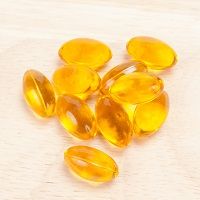Article
People with Advanced Chronic Kidney Disease Need More Vitamin D
Author(s):
Vitamin D has shown to play an important role in those with multiple sclerosis, chronic obstructive pulmonary disease (COPD), and even depression; now it looks like the same can be said about those with stage 3 or 4 chronic kidney disease (CKD).

Vitamin D has shown to play an important role in those with multiple sclerosis, chronic obstructive pulmonary disease (COPD), and even depression; now it looks like the same can be said about those with stage 3 or 4 chronic kidney disease (CKD).
In a poster session at the Endocrine Society’s annual meeting (ENDO 2016) in Boston, Massachusetts, researchers assessed disease activity associated with vitamin D levels.
“Vitamin D insufficiency (VDI) is defined as serum total 25-hydroxyvitamin D (25D) below 30 ng/mL in clinical practice guidelines applicable to secondary hyperparathyroidism (SHPT) in CKD,” wrote Stuart M Sprague, DO, from Northshore University Health System-University of Chicago, and colleagues.
Although current methods to raise VDI above 30 ng/mL have been sufficient, they do not control SHPT — which previous research has said is essential in order to maximally lower elevated intact parathyroid hormone (iPTH) in patients with CKD.
- MD Magazine is on Facebook, Twitter, Instagram, and LinkedIn!
The team conducted two identical trials to evaluate the impact of modified-release calcifediol (MRC) on elevated plasma iPTH. A total of 429 patients (average age around 65) with low serum 25D levels (10 to 30 ng/mL) and stage 3 or 4 CKD were included in the studies. The average serum 25D ranged from 16.5 to 21.5 ng/mL and mean plasma iPTH was 134.8 to 156.5 pg/mL. In addition, the averge eGFR was 30.1 to 32.3 mL/min.1.73m².
Two-thirds of the participants received oral MRC for 26 weeks while the remaining one-third unknowingly took a placebo. Those who took MRC started by taking 30 µg/d at night and if plasma iPTH remained above 70 pg/mL after 12 weeks, the dose increased to 60 µg/d. A total of 356 of the 429 patients (83%) completed the study where the researchers then recorded their 25D levels.
“More than 95% of subjects treated with MRC achieved serum 25D levels of greater than 30 ng/mL at end of treatment,” the authors confirmed. No matter if the patient had stage 3 or 4 CKD, their mean 25D levels rose with MRC. Also, average plasma iPTH serum collagen type 1 C-telopeptide and serum procollagen type 1 N-terminal propeptide decreased with more 25D.
However, the vitamin D treatment did not affect serum calcium (Ca) or phosphorus (P), or urine Ca or P.
“These findings indicate that serum 25D levels recommended for non-CKD patients are insufficient to control SHPT in stage 3 or 4 CKD and that higher, more effective levels (>60 ng/mL) can be safely achieved with daily MRC,” the team concluded.
Also on MD Magazine >>> The Latest News in Diabetes & Endocrinology




